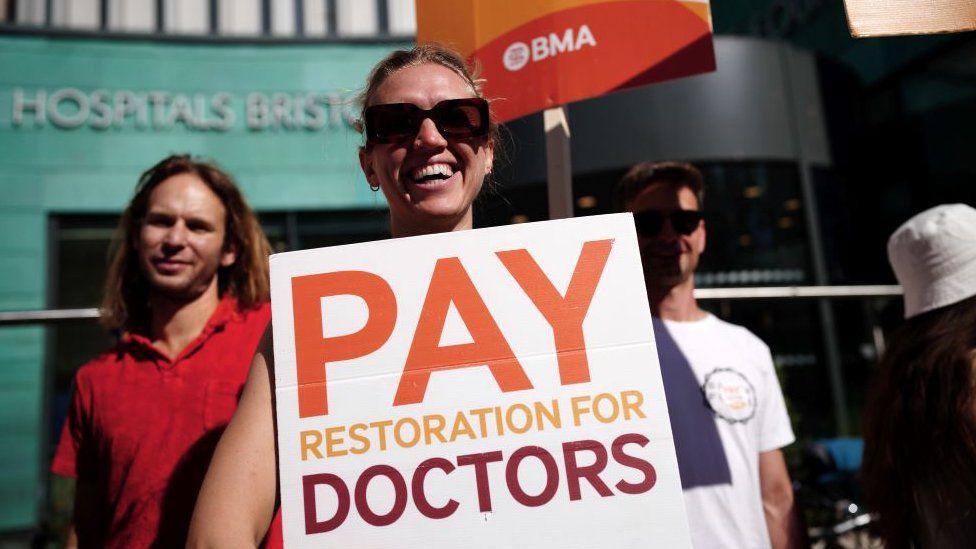12 minutes ago
About sharing
Consultants have rejected the new pay offer made by the government in England by the narrowest of margins.
Some 51% of members voted against it, prompting the British Medical Association to urge the government to better their offer.
The deal put forward was worth an extra 4.95% on average in basic pay from this month – and would have come on top of a 6% pay rise they got in April.
Members of the BMA were asked to vote on it after the offer was made last month.
Consultants took part in four walkouts last year and they have a strike mandate until June, but have not announced any more walkouts.
The amount individual doctors were to get on top of the 6% rise they have already received would have varied from zero to nearly 13% as part of an overhaul of their contracts.
Consultants at the much smaller Hospital Consultants and Specialists Union have also rejected the deal.
BMA consultants leader Dr Vishal Sharma said: “The vote has shown that consultants do not feel the current offer goes far enough to end the current dispute and offer a long-term solution.
“It backs up conversations we’ve had with colleagues in recent weeks, who felt the changes were insufficient and did not give them confidence that pay erosion would be addressed over the coming years.
“In addition, they were concerned about the fairness of the offer and how it impacted different groups of doctors. There were also clear concerns about changes to professional development time, and time dedicated to teaching and research.
“However, with the result so close, the consultants committee is giving the government a chance to improve the offer.”
The pay rise was linked to pretty significant changes in the consultants contract.
This including ending one of the merit awards systems consultants can get to top up basic pay. This meant the increase in basic pay would have only cost the government 3.45%.
This move affected younger consultants mostly.
The system of banding doctors was also to be streamlined.
The change was designed to ensure consultants spend less time on the bottom band and rise to the top more quickly, which it is hoped will help women who have taken time out to have, and care for, children.
The BMA has also agreed to stop pushing for premium rates of up to £269-an-hour for consultants to do overtime.
The union’s leadership did not go so far as to recommend the deal to members. It says the merits of the deal vary so much depending on what stage of their career a doctor is at, making it impossible to give a blanket recommendation.
Consultants had originally asked for an above-inflation pay rise this year – a figure in excess of 11% had been floated – and a commitment to start restoring pay in future years.
The BMA had argued that since 2008, pay levels had fallen significantly once inflation was taken into account.
